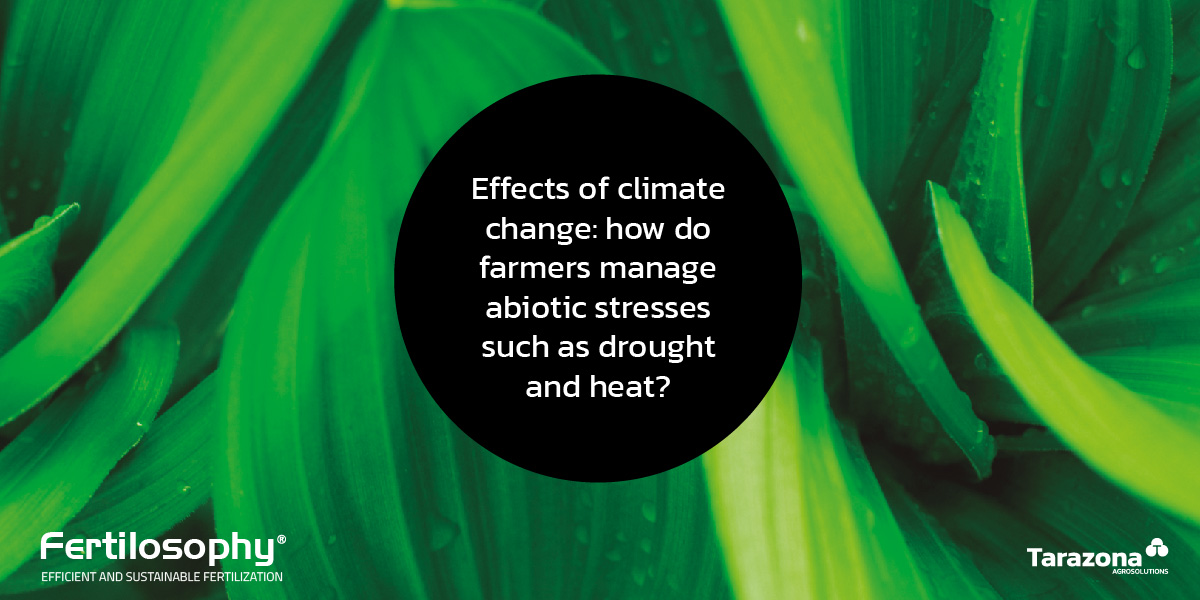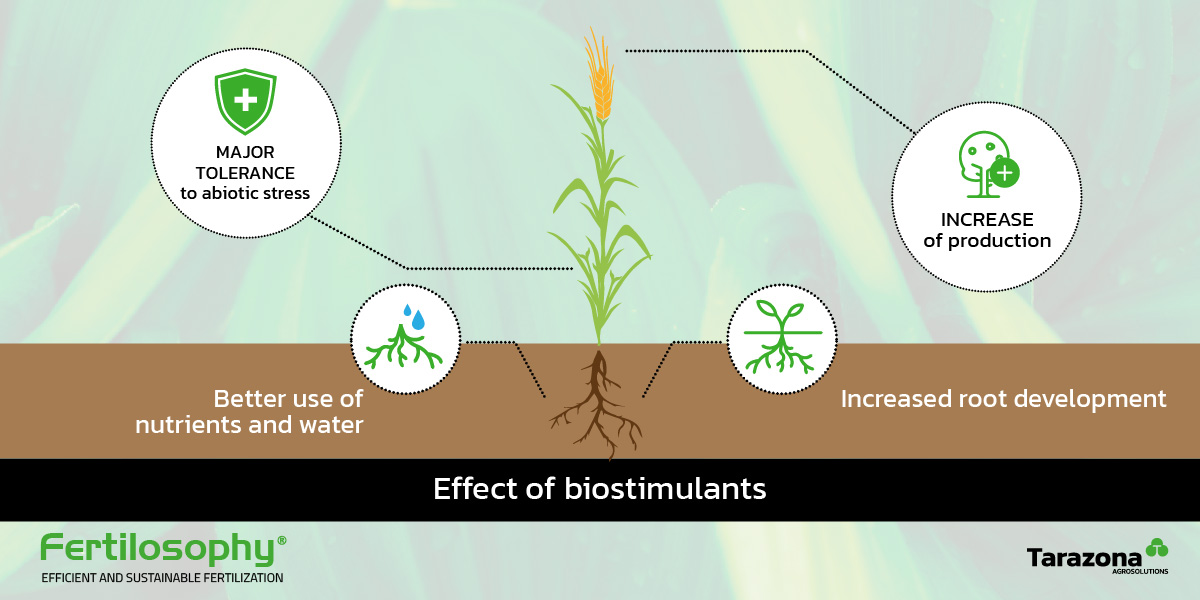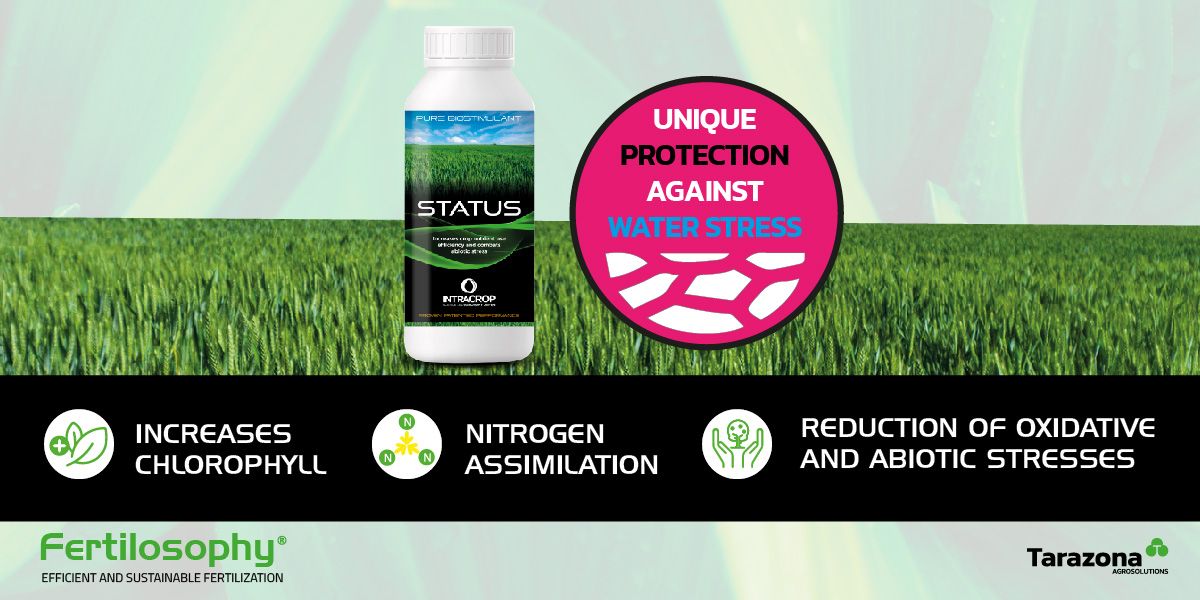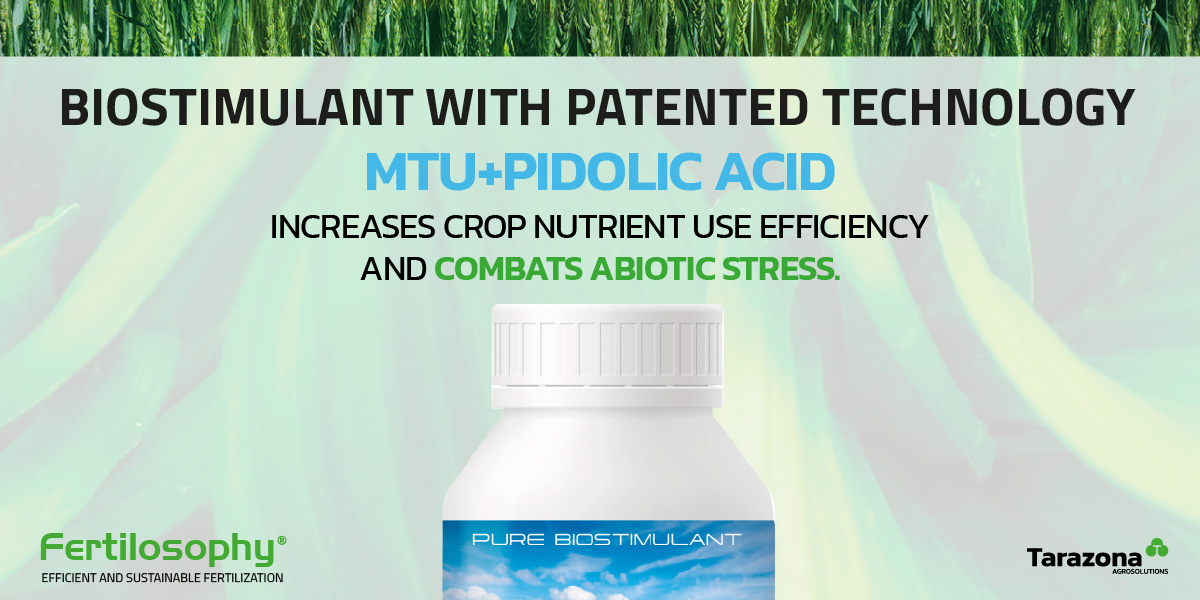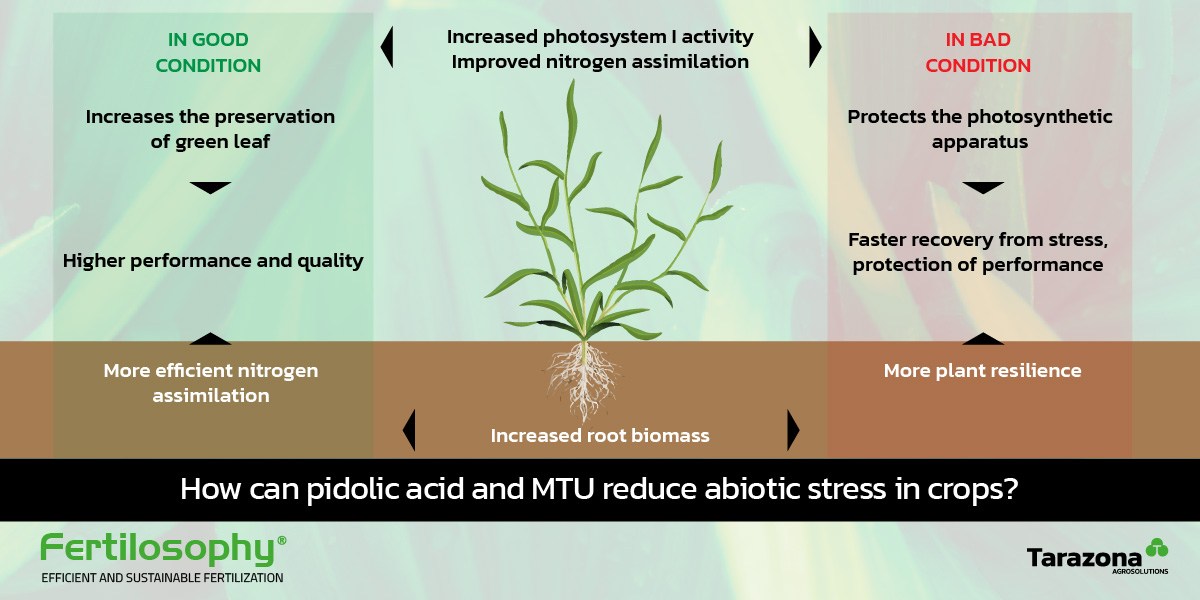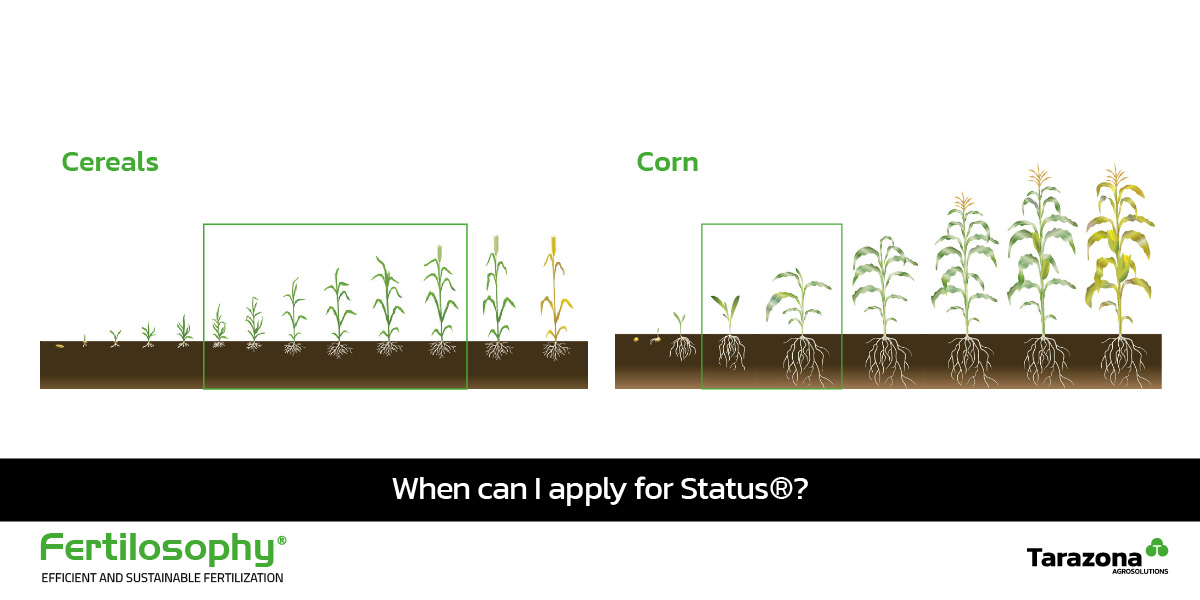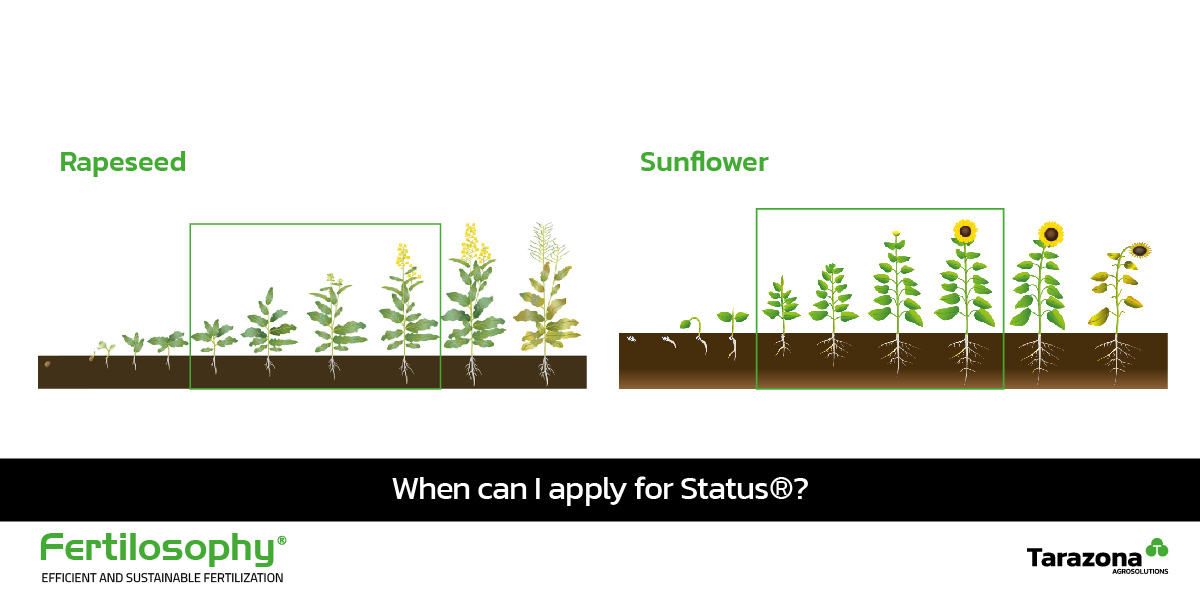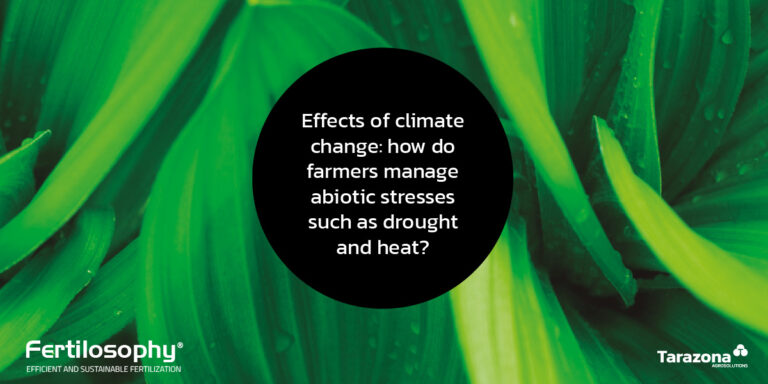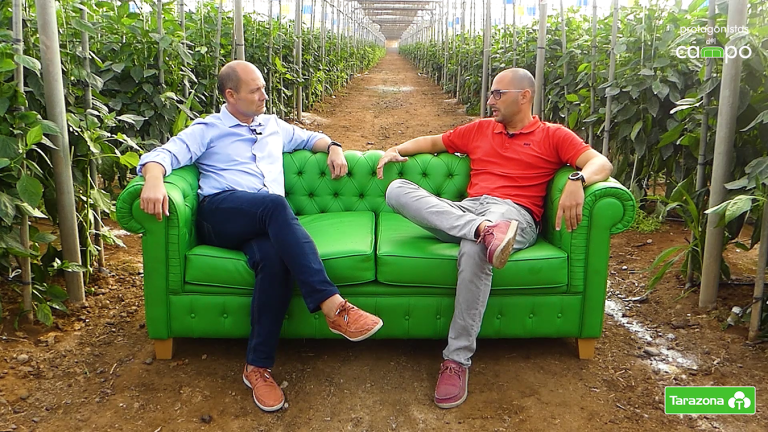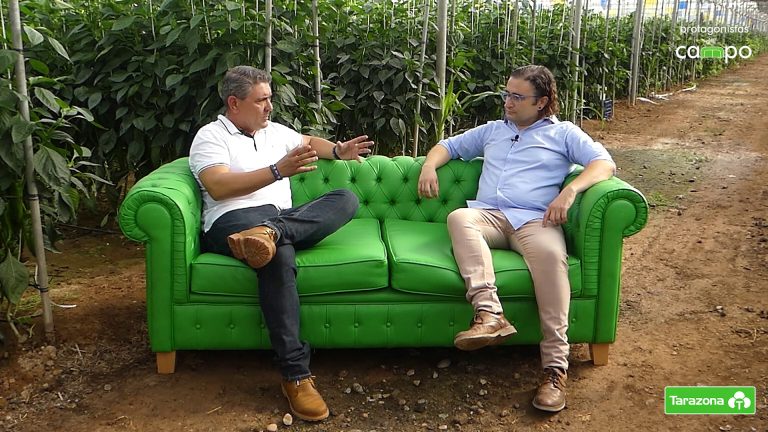Within the agricultural world, a new normality is present, conditioned by the effects of climate change (abiotic stress, drought, heat, salinity) which are increasingly present. In southern Europe, what were once considered extreme climatic conditions are becoming increasingly normal. Summer temperatures regularly exceed 40 degrees Celsius, with record temperatures being reached as early as April 2023. Other effects include large forest fires and regular flooding (e.g. in Italy and Greece). Globally, 2023 was the hottest year on record and 2024 is expected to be even hotter.
So how can farmers continue to grow crops to feed a growing population while having to cope with this new normal?
At Tarazona Agrosolutions we work to address the issues that arise in agriculture and help farmers mitigate the impact of abiotic stress caused by climate. With extreme heat becoming commonplace and low water reserves forcing crop irrigation restrictions, farmers have to find ways to manage their crops in these new conditions. To this end, a powerful new biostimulant called Status® has been introduced to the Spanish market, which is specifically designed to help crops cope with climate change and therefore abiotic stress.
In the agricultural world, we are facing a new normality conditioned by the effects of climate change (abiotic stress, drought, heat, salinity), which are increasingly present. In southern Europe, what were once considered extreme weather conditions are becoming increasingly normal. Summer temperatures regularly exceed 40 degrees Celsius, reaching record temperatures as early as April 2023. Other effects such as large forest fires and floods that occur periodically (Italy and Greece, among others). Globally, 2023 was the hottest year on record and 2024 is expected to be even hotter.
So how can farmers continue to grow crops to feed a growing population while facing this new normal?
At Tarazona Agrosolutions we work to address the issues that arise in agriculture and help farmers mitigate the impact of abiotic stress caused by climate. With extreme heat becoming commonplace and low water supplies forcing restrictions on crop irrigation, farmers are having to find ways to carry their crops forward in these new conditions. To this end, a powerful new biostimulant called Status® has been introduced to the Spanish market, which is specifically designed to help crops cope with climate change and therefore abiotic stress.
Biostimulants as a solution to abiotic stresses
Status® contains two pure biostimulants: pidolic acid and the award-winning patented MTU (1-(2-methoxyethyl-3-(1,2,3-thiadiazole-5yl) urea). Pidolic acid is known to enhance nitrogen assimilation, while MTU protects the photosynthetic apparatus. Under healthy conditions, Status® increases green leaf retention and improves nutrient use efficiency, while, under stressful conditions, it ensures that photosynthesis continues and improves plant resistance.
Status® is manufactured by IntraCrop, a UK-based company specializing in the development of unique biostimulant products to support crop productivity in a changing world. Its commercial director, Dr. Mark Palmer, explains how Status® works. “The strength of Status® is that it makes a difference in both good and bad conditions. Farmers are mainly concerned about coping with difficult conditions, which can be reduced by pidolic acid and MTU.”
How does pidolic acid influence crops?
Pidolic acid is a natural substance found in all crops that regulates nitrate assimilation. In situations of environmental stress such as heat, high salinity soils or drought, pidolic acid levels decrease and the plant stops growing. This can lead to a toxic accumulation of ammonia in the tissues. It also reduces the final yield due to reduced growth. Applying Status® can restart growth and remove ammonia from the tissues. Early applications of pidolic acid have also been shown to increase root growth, aiding crop establishment.
How can MTU reduce abiotic stress (drought, heat and salinity)?
The patented MTU molecule protects yield and quality by delaying both aging and stress-related leaf senescence, allowing photosynthesis to continue longer into the season. An application of Status® before climatic stress occurs can help the plant resist damage and keep the leaf surface green longer.
Status® has been extensively tested under various conditions. The latest trials included reduced nitrogen applications. The positive results obtained could be significant for farmers in Spain as they must reduce nitrogen use by 20% by 2030 under the Farm to Table Strategy plan.
Spanish farmers are being asked to produce the same or more under increasing environmental stress, with reduced irrigation options and less fertilizer. Using Status® before stress begins increases photosynthesis, which increases the sugar content of the plant and aids in nitrogen assimilation. Status® MTU also increases lateral root growth, which allows the plant to locate soil moisture and nutrients more easily.
One point to note is that Status® does not contain any nutrients. Growers add it to their existing fertilizer program at the beginning of the season and, depending on the weather, it either improves yields in good conditions or helps the plant maintain yields in difficult conditions. Protects against all forms of abiotic stress, including heat, drought and salinity. A good example is for crops under drip irrigation that are often subjected to saline conditions around the root zone. The MTU in Status® not only helps the plant recover after drought, but also helps maintain better growth in saline soils.
How and when can I apply Status®?
Status® is applied via foliar, it is very easy to tank mix, so it can simply be added to existing spray programs. Normally, early season applications give the best results.

